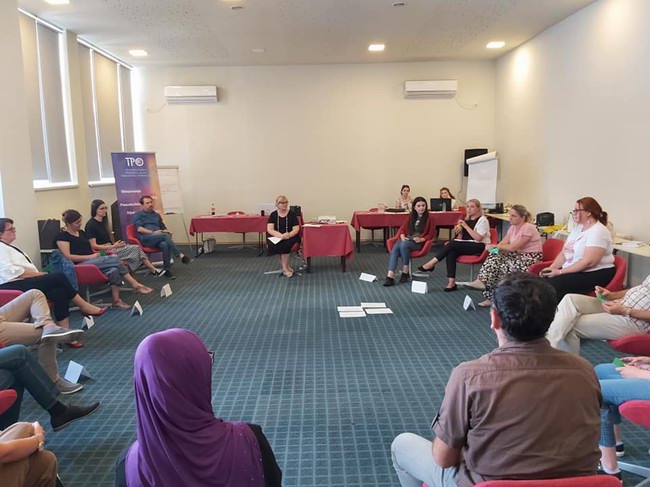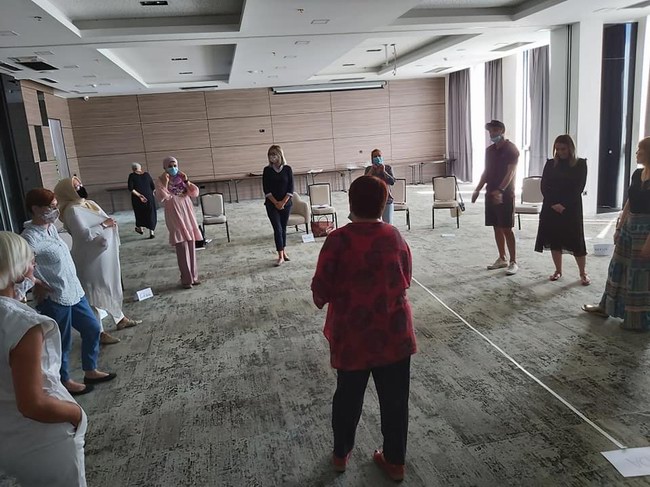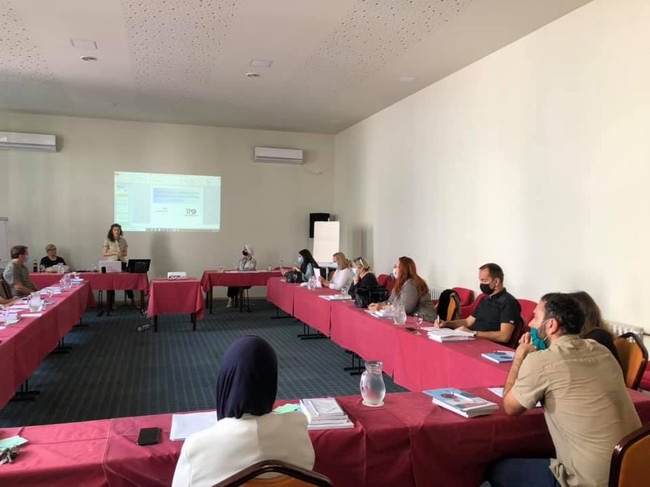August 2020
TPO FOUNDATION AND SAPERE BIH - 1. GROUP OF PARTICIPANTS OF PHILOSOPHY FOR CHILDREN – P4C IN LEARNING SKILLS AND TECHNIQUES TO ENCOURAGE CRITICAL THINKING
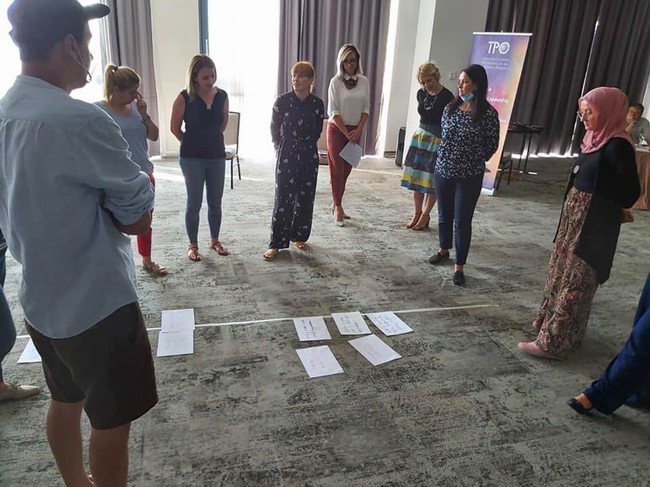
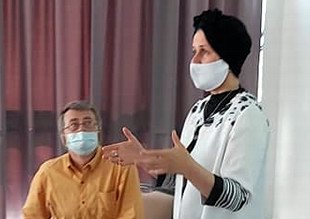
The SAPERE BIH program promotes and affirms philosophy for children as a method and approach in learning and teaching, with the aim of developing thinking skills, communication, as well as building self-confidence and improving the overall personality.
After two years of training, education, and material preparation, TPO Foundation, in cooperation with four ministries of education CS, HNC, CBC ZDC, launched the first education Philosophy for Children according to the SAPERE BiH method for high school teachers in these cantons. The first education was organized in Zenica in the period from August 19 to 21, 2020 for teachers of Zenica-Doboj and Central Bosnia cantons, while professors from the Faculty of Philosophy in Banja Luka joined the education, too. Trainers Sedžida Hadžić and Melika Šahinović, as the first trainers of SAPERE BiH, with the assistance of Mirza Džananović and Dragana Koprivica, led a three-day training for future trainers (TOT). The plan is to, in cooperation with the ministries of education, implement four cycles of training in the field of Philosophy for Children with the first group of participants in four cantons, based on which they will become trainers for high school teachers in these cantons. In addition to the theoretical part about the program and methods of work, as well as the original meaning of critical thinking, the importance of stimulus is especially emphasized, as a fundamental step in the realization of philosophical enquiry. A stimulus serves to open a discussion at the beginning of a philosophical enquiry. The stimulus can be text, photo, quote, video, etc. During the training, various stimulus are used through which their importance, intentions and goals are presented. Through practical work and exercises, the teachers themselves designed the stimulus. The teachers, in the role of facilitator in the classes he/she implements according to the curriculum, carefully designs the stimulus from the material he/she processes with the students, with the aim of encouraging quality questioning among students and critical thinking.
In the period from 26-28.8.2020, training for teachers from Sarajevo and Herzegovina-Neretva Cantons was held in Sarajevo. Trainers Elmana Cerić and Sead S. Fetahagić, with assistants Elma Softić-Kaunitz and Mubina Muftić, worked on the theoretical and practical parts through creative and interactive work with participants, comparing methods of critical thinking with current methods applied by teachers in classrooms. Special attention was paid to comparisons of roles, responsibilities and tasks between facilitators in philosophical enquiry and teachers in regular classes. Unlike the teacher, the facilitator has the task of challenging and confusing the participants of the philosophical enquiry on the way to their cognition and aspiration to build opinions and attitudes on the topic being covered. The role of facilitator is therefore a challenging role for teachers who mostly view their vocation through the method of teaching or retelling and explaining the subject and most often not providing enough space for students and their personal perception and unobtrusive thinking based on personal research and reflection.
Participants in the first training in Zenica were teachers of mother tongue and foreign languages, history, philosophy, as well as pedagogues, psychologists and social workers, and most of them come from gymnasiums and mixed high schools, as well as medical high schools and colleges. Participants from different places, after the first training, will implement the acquired skills by organizing philosophical enquiries in their home schools in Sarajevo, Konjic, Zenica, Banja Luka, Visoko, Maglaj, Jajce, Travnik, Novi Travnik and Vitez with students and colleagues teachers.
The next cycle for the first group of Philosophy for Children participants is planned to be realized at the end of October, when the participants will work on the importance of integrating four types of thinking in philosophical enquiry (critical, creative, collaborative and caring thinking). During the four-day training, the participants will be led by several trainers, assistants and supervisors with the aim of greater analysis and monitoring of the progress of each participant in this area. An interactive approach and continuous exercises are key in this education, because in this way each participant has his/her own space to think create and present their ideas and works. Participants will have the opportunity to receive the first manual on approaches and methods in learning and teaching to encourage critical thinking for students, writen by authors Elmana Cerić, Melika Šahinović and Sead S. Fetahagić and published by the TPO Foundation.
SAPERE (Society for Advancing Philosophical Enquiry and Reflection in Education), is an institute from London that educates teachers in Great Britain and throughout Europe and the world according to the P4C Philosophy for Children method. The TPO Foundation started cooperation with the SAPERE Institute in 2018, when it established the SAPERE BiH program with the aim of promoting critical thinking through philosophical enquiry with children and young people. Within the SAPERE BiH program, the TPO Foundation has formed a group of primary, secondary and higher education teachers who have become certified trainers (TOT) through intensive one-year training. The SAPERE Institute in London certified them to work with teachers and children.
The Philosophy for children P4C developed by Mathew Lipman is based on the Socrates method of questioning and Dewey's concept of the "Community of Philosophical Enquiry". Philosophy for children P4C is a method of questioning and is based on: thinking about philosophical big questions and concepts; reflection and argumentation that lead to the improvement of thinking skills, shaping and changing attitudes; fostering questioning skills: critical, creative, collaborative and caring thinking for which the English abbreviation 4C is often used.
In addition to the implementation of this program in FBiH high schools, which the TPO Foundation is currently implementing in partnership with four ministries of education with the aim to integrate these methods in the BiH education system, Thinkerica Education Center offers additional trainings that are open to all interested individuals. In addition to students, this method is also applied to graduates of pedagogical and teaching fields, teachers in kindergartens, as well as other groups of people, of any age, who share different experiences, who are open to other ways of thinking and who respectfully, by understanding and respecting the attitude towards each interlocutor and his opinion, while the individual, as a member of this community, decides to think and act according to his own constructed attitude. More information can be obtained via the contact telephone and e-mails of the TPO Foundation and the Thinkerica Education Center.
